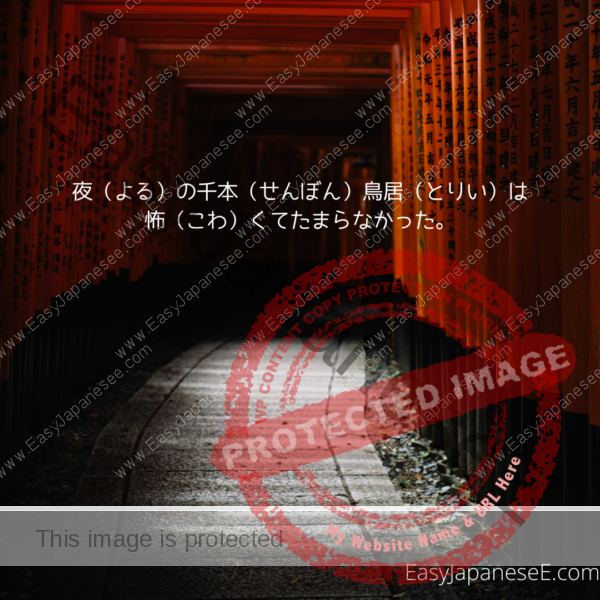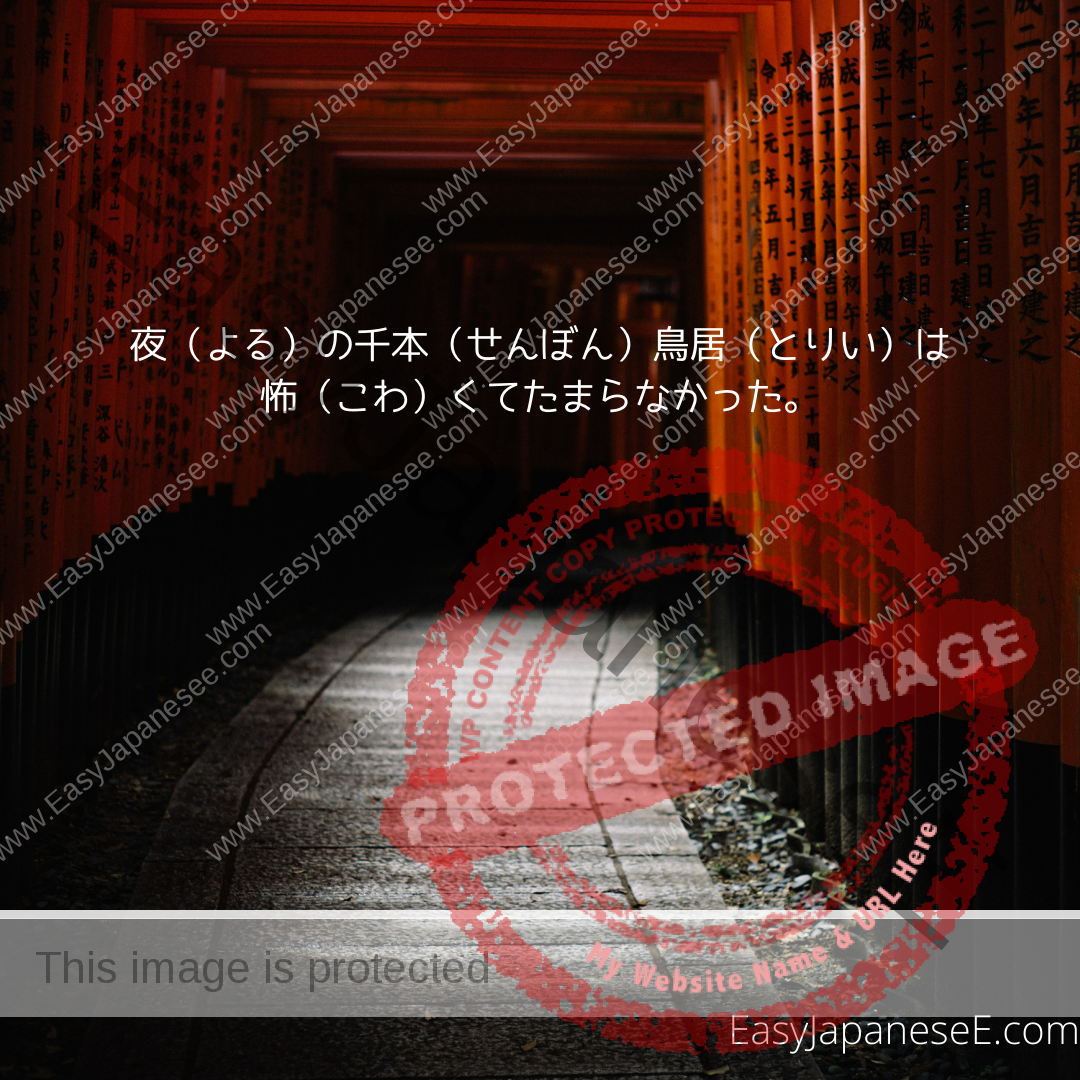
Today’s Grammar Point: ~てたまらない
たまらない is the negative form of the verb 堪る which means “to bear”, “to endure”, “to tolerate”, etc. So たまらない is to describe something that is unbearable or irresistible. It is very often used with the てform of an adjective.
Connections
- [いadj stem] + くて + たまらない
- [なadj] + で + たまらない
Examples
夜の千本鳥居は怖くてたまらなかった。(Today’s Caption)
The 1000 Torii gates were unbearably scary at night.痛くてたまらない。
It is painful beyond endurance. I cannot stand the pain.悲しくてたまらない。
I’m overwhelmed with sorrow.おかしくてたまらない。
It is terribly funny.今日は寒くてたまらない。
I cannot stand this cold today.ジョンさんは名声が欲しくてたまらないんだ。
John is so hungry for fame.心配でたまらない。
I’m worried to death.彼女が好きでたまらない。
I’m desperately in love with her.仕事が嫌でたまらない。
I just can’t stand this job.
If somebody wants to do something desperately, you can use the pattern:
- [verb stem]したくてたまらない
東京へ行きたくてたまらなかったんだ。
I felt an irresistible urge to go to Tokyo.ジョンさんに会いたくてたまらない。
I’m dying to see John.この風景が見たくてたまらない。
I cannot wait to see this view.
If you liked this article, please share it with your friends using the social media buttons below. Also, your clicks on ads on this page help covering the cost of running this website. Your support will be much appreciated.

